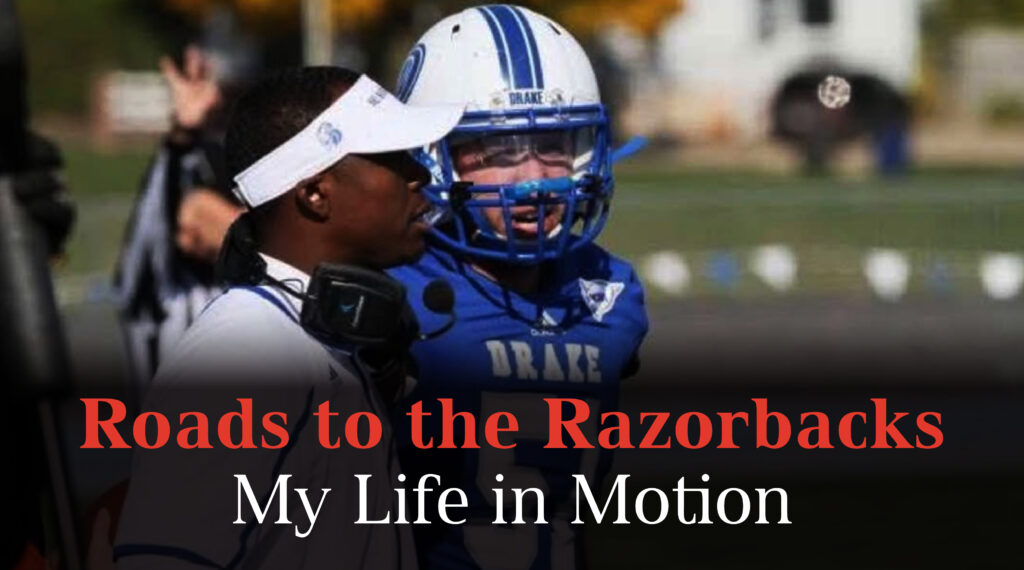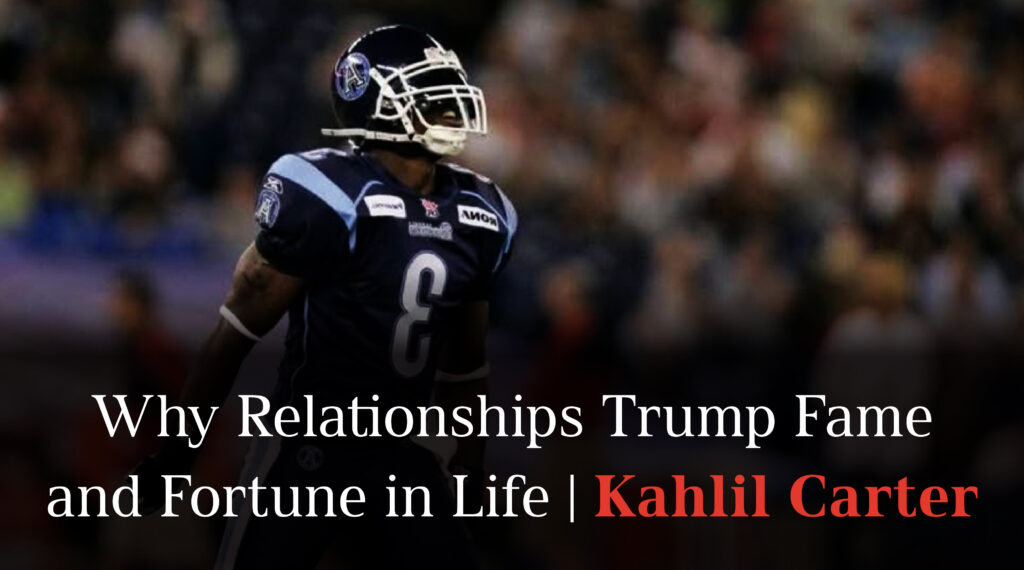I’ll never forget the first time I stepped onto the University of Arkansas field as a walk-on. My stomach churned with nerves, my palms sweaty, gripping the straps of a beat-up duffel bag that held my dreams. It was 1996, and I was 20 years old, a kid from the projects with no scholarship, no fanfare—just a burning need to prove I wasn’t invisible. That moment defined me, not because it was glamorous, but because it was the start of a fight I’d been waging my whole life: the fight to belong.
Growing up, I never felt like part of the “in crowd.” In my neighborhood—whether it was the crumbling streets of Cherry Hills in Maryland or the gang-riddled blocks of Pine Bluff, Arkansas—I was the kid in torn moccasins, the one whose mom packed warm bologna sandwiches instead of letting us grab McDonald’s. At home, I wasn’t the oldest son with all the privileges or the youngest getting extra attention. I was just Kahlil, stuck in the middle, trying to find my place. And on the football field? Forget it. I wasn’t the high school star with recruiters knocking down my door. I was the guy who had to claw his way in, the walk-on nobody expected to last.
Those early days at Arkansas were brutal. I’d show up to practice in gear that didn’t quite fit, hand-me-downs from players who’d already made their mark. The other guys had their names on lockers, their futures mapped out. Me? I had a chip on my shoulder bigger than the stadium itself. I’d run drills until my lungs burned, lift weights until my arms shook, all while the doubt whispered in my ear: You don’t belong here. But I’d look at the Razorback logo on my jersey—earned, not given—and think, I’m not leaving until they see me.
The struggle wasn’t just physical. It was mental, emotional, spiritual. I’d grown up watching my mom, Linda, fight her own battles—single-handedly raising three boys, working late hours, keeping us out of trouble. She’d say, “Focus on victory, Kahlil,” and I carried that with me. But there were days I’d sit in the locker room after practice, head in my hands, wondering if I’d ever be more than the outsider. I’d think about my dad, Oma, who drifted through life, never showing me what it meant to stand firm. I didn’t want that. I wanted to be seen, to matter.
Then came the turning point. It was a late fall practice, the kind where the air bites your skin and the sun’s already gone. I’d been running routes, taking hits, getting back up—same as always. One of my teammates, Donnell Fletcher, pulled me aside after a play. He looked me dead in the eye and said, “You don’t quit, do you? Most guys would’ve walked away by now.” His words hit me like a linebacker. I’d been so busy fighting to prove myself that I hadn’t noticed: I was proving it, every single day. That’s when I realized this wasn’t just about football. It was about claiming my place in the world, about showing God and myself that I could turn chaos into something real.
From then on, I leaned into that truth. Belonging isn’t something you’re handed—it’s something you earn. I earned it with every sprint, every late night studying playbooks, every time I ignored the “no” echoing in my head. I’d think about Brandon Burlsworth, my teammate and friend, who walked on before me and showed me what resilience looked like. He didn’t have it easy either, but he trusted the process, and so did I. God gave me the strength to keep going, even when my body screamed to stop, even when I felt alone on that field surrounded by a hundred other guys.
Looking back, those walk-on days taught me something I carry with me now, whether I’m coaching or just trying to be a better man for my family. The real victory isn’t the spotlight or the applause—it’s knowing I never gave up. I didn’t need to be the celebrated athlete or the guy with the scholarship. I just needed to be Kahlil, the one who showed up, who fought, who refused to let “can’t” define him. Sure, I made it off the walk-on list eventually, earned my spot, and felt the thrill of the crowd’s roar. But the moment that sticks with me isn’t the wins—it’s that first step onto the field, when I decided I belonged, no matter what anyone else thought. That’s what I want you to take from this. Maybe you’re not chasing a football dream, but I bet you’ve felt that ache to fit in, to be seen. I’m here to tell you it’s not about who’s watching—it’s about who you’re becoming. For me, it took a pair of worn-out shoes, a mother’s wisdom, and a whole lot of faith to figure that out. God turned my outsider story into something powerful, and He can do the same for you. So, keep fighting. Your place is out there, waiting for you to claim it.


